July 2022 FloridAgriculture eNewsletter
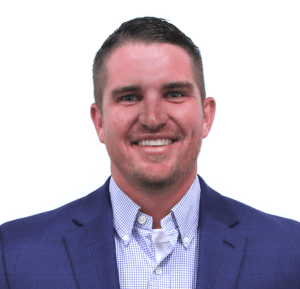 Clay Cooper
Clay Cooper
YF&R State Leadership Group, District 5
Being introduced to agriculture at a young age has cultivated a passion and appreciation in Citrus County native, Clay Cooper. Cooper’s passion began when he started showing beef heifers and steers at his county fair. Throughout the years, he decided he wanted to pursue a formal education in agriculture.
Following his college career, Cooper accepted a job as the UF/IFAS agricultural and natural resources Extension agent with Citrus County. During his six years with UF/IFAS, Cooper gained a diverse knowledge base of agriculture, preparing him for his current job as general manager of Fenco Farms. Fenco Farms focuses on beef production, specifically commercial, registered Brangus and club calves. In addition to raising beef cattle, the farm produces Bahia grass seed, hay and harvest sod.
Cooper’s involvement with Farm Bureau began when he was asked to sit on the board of directors for Hernando/Citrus County Farm Bureau. Since that first ask, Cooper has served as the Hernando/Citrus County Young Farmers & Ranchers Committee co-chair and currently serves on the YF&R State Leadership team as well as the Florida Farm Bureau Federation’s Water and Natural Resources Advisory Committee.
“One of the things I enjoy most about Farm Bureau is the fellowship, networking and seeing everyone come together as a unified voice for agriculture,” he said. “Florida agriculture is constantly evolving and it is refreshing to see a group of like-minded people continue to push forward to preserve and conserve our way of life.”
During his time in YF&R, Cooper has seen firsthand how Farm Bureau members in his county have given back to their community. Every holiday season, the Hernando/Citrus County YF&R group hosts fundraisers in partnership with local school programs.
The schools identify families that are in need and the money raised provides meals for them. Throughout the last couple of years, they have been able to provide meals for more than 400 families. Cooper is proud of the growth and success of this fundraiser.
With his involvement in agriculture, Cooper has witnessed firsthand the resiliency of farmers and ranchers and has learned how to be resilient himself.
“Agriculture is ever changing and each of us must find ways to become more efficient and innovative within our commodity groups,” he stated. “Farming and ranching is more than a job. It truly is a lifestyle and something that you have to be passionate about. It honestly does take resiliency to push through some of the hard times, but at the end of the day, I don’t know of many careers that are any more rewarding.”

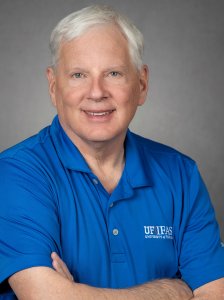 By J. Scott Angle
By J. Scott Angle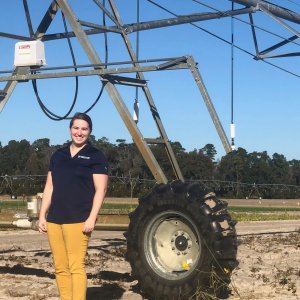
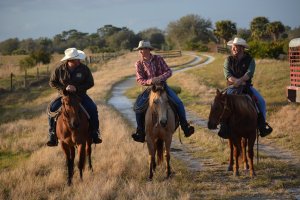 The Cattle Price Discovery, and Transparency Act (CPDTA) remains a pressing issue for America’s cattle ranchers, negatively impacting their livelihoods. Fifth-generation cattle rancher, J Ryals of Desoto County, recently shared with
The Cattle Price Discovery, and Transparency Act (CPDTA) remains a pressing issue for America’s cattle ranchers, negatively impacting their livelihoods. Fifth-generation cattle rancher, J Ryals of Desoto County, recently shared with 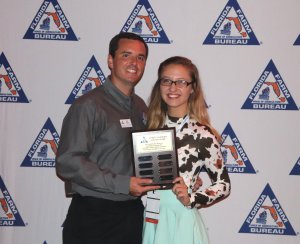
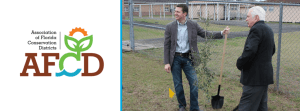 The Association of Florida Conservation Districts (AFCD) was formed in 1937 in conjunction with Florida’s
The Association of Florida Conservation Districts (AFCD) was formed in 1937 in conjunction with Florida’s  Farm Bureau women from across district 3 gathered in Baker County at South Prong Plantation on May 21 for their annual district women’s conference.
Farm Bureau women from across district 3 gathered in Baker County at South Prong Plantation on May 21 for their annual district women’s conference. By J. Scott Angle
By J. Scott Angle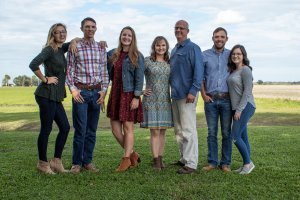
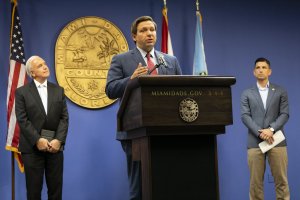 HB 909 clarifies that the Secretary of Environmental Protection has exclusive jurisdiction in setting standards for evaluating environmental conditions and assessing potential liability for the presence of contaminants on land that is classified as agricultural, and is being converted to a nonagricultural use. This legislation was approved by Governor DeSantis on May 18, 2022 and becomes effective July 1, 2022.
HB 909 clarifies that the Secretary of Environmental Protection has exclusive jurisdiction in setting standards for evaluating environmental conditions and assessing potential liability for the presence of contaminants on land that is classified as agricultural, and is being converted to a nonagricultural use. This legislation was approved by Governor DeSantis on May 18, 2022 and becomes effective July 1, 2022.